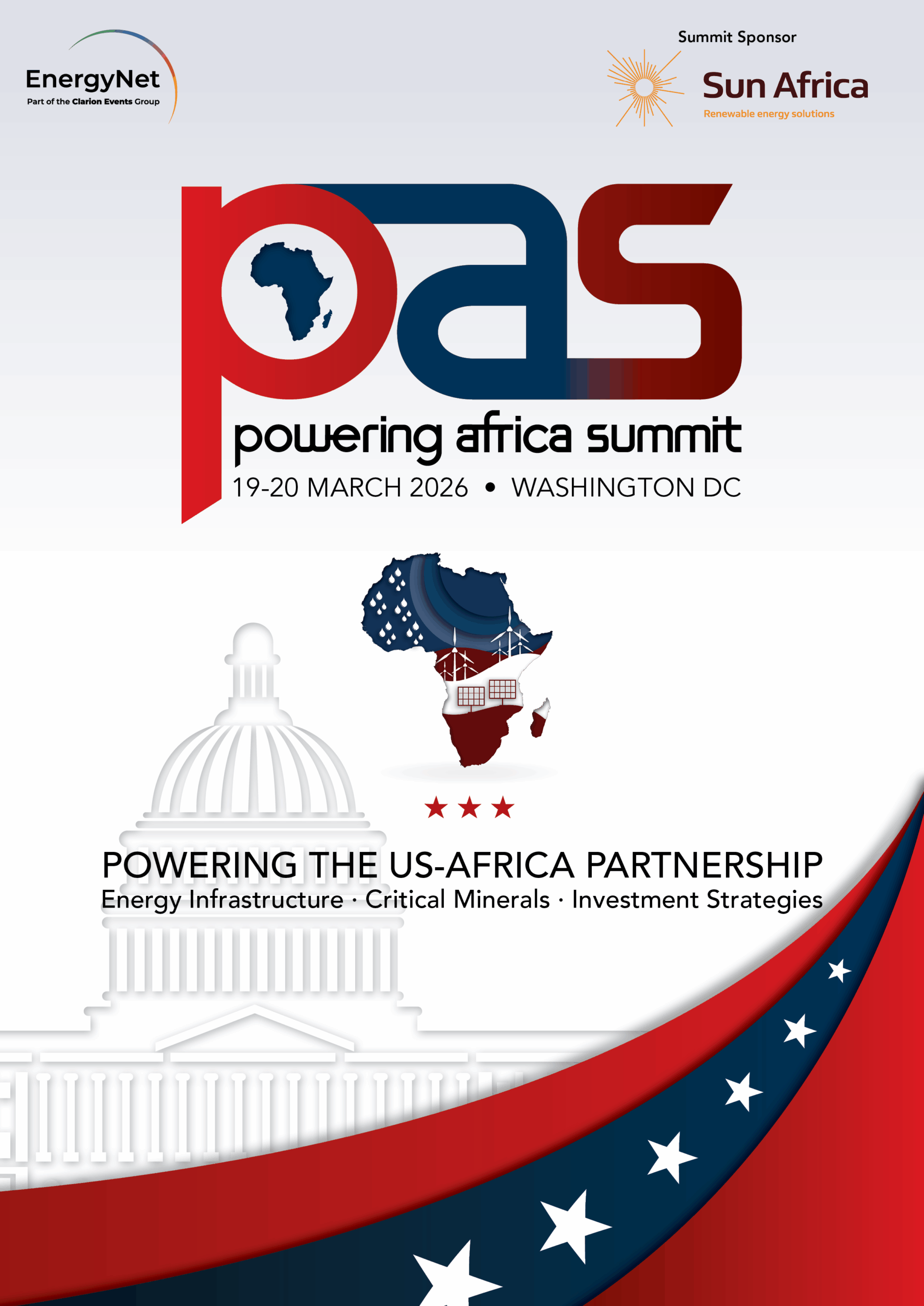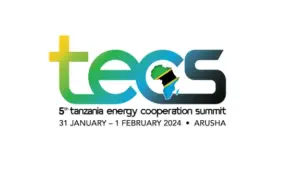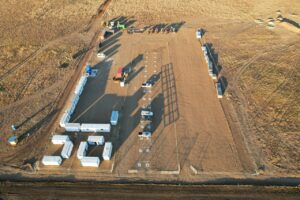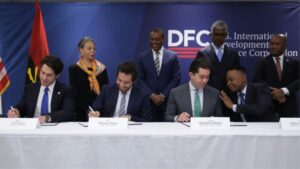
Monie Captan Discusses Petrodex’s Role in Southern Africa’s Energy Transition
As Southern Africa grapples with rising energy demand, climate-driven hydropower shortages, and the need for diversified supply, companies like Petrodex are stepping into a pivotal role. Petrodex is expanding rapidly across Zambia, Mozambique, and the DRC. From commissioning the first phase of the Mailo Solar PV Plant in record time to signing a 400 MW MoU with ZESCO, Petrodex is positioning itself as both a catalyst for clean energy growth and a key player in regional power trading.
In this interview, we spoke with Monie Captan, the Deputy CEO for West Africa at Petrodex. We explore the drive behind Petrodex’s expansion, vision for new opportunities in Zimbabwe, the evolving role of regional power trading and the success of delivering large-scale renewable projects across Southern Africa.
Petrodex has expanded rapidly into Southern Africa, particularly Zambia, Mozambique, and the DRC. What factors have driven this expansion, and how are you evaluating new markets such as Zimbabwe?
Petrodex’s journey in Southern Africa began in Zambia, where our operations in the oil and gas sector gave us first-hand insight into the region’s energy challenges, most notably, the shortage of reliable electricity. Zambia, where 87% of its electricity is generated from hydropower, has faced recurring power crises due to droughts driven by climate change. The recent El Niño-induced drought reduced hydropower output by over 70% of Zambia’s 3.7 GW installed capacity, triggering severe blackouts and threatening economic goals, including copper production targets outlined in the 8th National Development Plan.
Ongoing sector reforms—particularly the shift away from a state utility-led single-buyer model, have opened the market to private participation, enabling private players like Petrodex to contribute meaningfully to national energy security. Recognizing the urgency, Petrodex has stepped up to be part of the solution, leveraging its financing capacity, energy trading expertise, and infrastructure investment capabilities to help address supply gaps. Our cross-border power trading activities have been enabled by existing transmission interconnections and a supportive regulatory framework.
We see Zimbabwe as another country with significant potential, and we are currently assessing opportunities based on our key considerations in new market evaluations:
- Lender appetite to finance transactions
- Supportive government policies (including licensing, taxation, currency convertibility)
- Manageable legal and regulatory risk
- Bankable power purchase agreements (PPAs) with creditworthy counterparties
- Adequate electricity infrastructure
- Constructive engagement between DFIs and local stakeholders
- A stable banking sector
This disciplined, criteria-based approach ensures that our expansion aligns with both commercial viability and regional energy security goals.
What conditions would make Zimbabwe an attractive and bankable market for Petrodex?
Zimbabwe’s potential is clear. To unlock it, several enabling factors would strengthen investor confidence and ensure sustainable growth in the energy sector:
- Lender appetite – Availability of domestic, regional, and international financiers willing to support energy transactions at competitive terms.
- Supportive policy environment – Clear and predictable frameworks for licensing, fair taxation, and guaranteed currency convertibility to protect investor returns.
- Legal and regulatory stability – Manageable risk exposure with enforceable contracts and consistent regulatory enforcement.
- Bankable PPAs – Creditworthy counterparties and commercially viable tariff structures that can secure long-term financing.
- Robust infrastructure – Adequate generation, transmission, and distribution capacity to enable reliable supply and cross-border trade.
- Stakeholder alignment – Effective communication and collaboration between DFIs, government agencies, and local market participants
- Banking sector stability – A resilient financial system capable of supporting project transactions and facilitating cross-border payments.
With these foundations, Zimbabwe could become a dynamic hub for regional energy trade and investment.
How do you see the role of regional power trading evolving over the next five years?
We believe regional power trading will become an even more important driver of economic growth in Southern Africa with state utilities and independent power producers (IPPs) adding new generation capacity, while energy-intensive industries—particularly mining—expand their operations. In this evolving landscape, power traders are critical in matching diverse sources of generation with varying consumption patterns, helping to balance regional surpluses and deficits.
However, generation alone is not enough. Reliable infrastructure to deliver electricity to where it is most needed is equally critical. Petrodex is taking a proactive role in this space, helping clients overcome supply constraints through last-mile connectivity and distribution solutions—both on-grid and off-grid. Our focus is on ensuring that power reaches end-users consistently and efficiently, enabling industrial growth and improved quality of life.
After successfully completing Phase One of the Mailo Solar PV Plant 25MW, what enabled you to achieve this milestone in record time, and what are the next steps to reach the full 100 MW capacity?
Our success with the 25 MW Phase 1 of the Mailo Solar PV Project is rooted in strong partnerships and local trust. Years of working in Zambia allowed us to build confidence in the country’s investment climate, giving us the assurance to finance Phase 1 entirely from our own equity. By working closely with partners experienced in delivering solar projects across Africa, and actively engaging with relevant regulatory authorities, we successfully completed Phase 1 (25 MW) of the Mailo Project in record time—a testament to the strong collaborative efforts of all parties involved.
Following commissioning and the successful injection of energy into the Zambian grid, financing institutions have shown strong interest in supporting the remaining phases. Construction of Phase 2 is already underway.
This achievement has deepened our ties with government agencies, utilities, regulators, and financiers, reinforcing our long-term commitment to Zambia’s clean energy transition.
Following the MoU signed with ZESCO for 400 MW, what’s next for Petrodex after Mailo, and how do you plan to deliver on this ambition?
The 400 MW MoU with ZESCO is an important milestone for Petrodex, and we are approaching it with focus and discipline. Petrodex is actively pursuing multiple growth pathways, including the development of greenfield projects, investments in existing initiatives, and strategic acquisitions or partnerships. We apply a rigorous screening process to identify opportunities that are both technically sound and commercially viable, with a focus on projects that can be executed quickly and efficiently. All initiatives are aligned with Zambia’s national objective to rapidly expand grid-connected electricity. By delivering on this MoU, we aim not only to strengthen the country’s energy security but also to support industrial growth, job creation, and broader economic development.

















